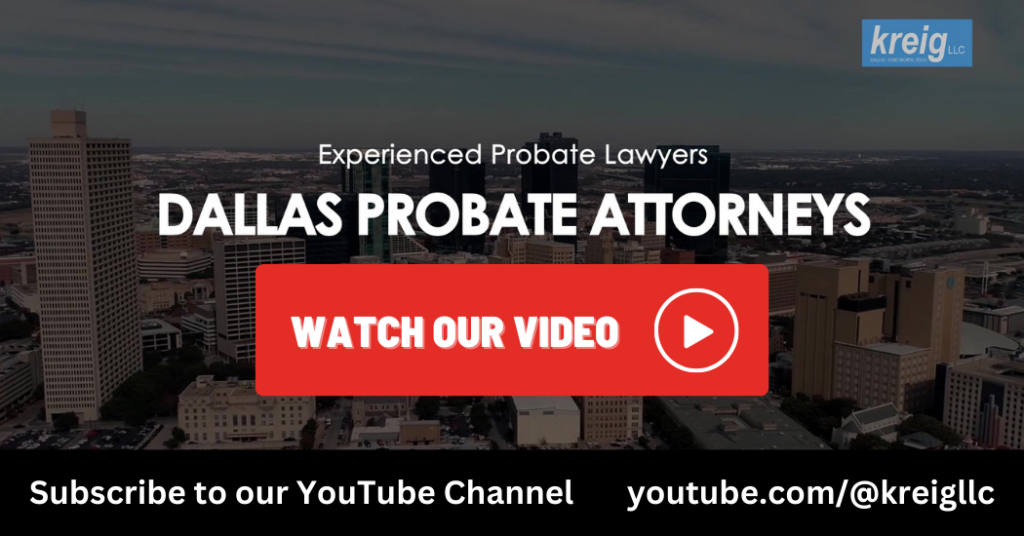No one likes to think about what will happen after they die, but it’s important to have a plan in place. If you don’t, your loved ones may have to deal with a lot of complications. One of the biggest problems they might face is probate. Probate is the legal process of distributing a person’s assets after they die.
In Texas, this process can be held up for various reasons, including fighting among relatives, no will, and other issues. In this blog post, we will explore some of the things that can hold up your probate in Texas. We’ll also provide some tips on how to avoid these problems so that your loved ones can have an easier time after you’re gone.
What is Probate?
When a person dies, their estate must go through the probate process in order to be distributed to their heirs. Probate is the legal process of settling the estate of a deceased person. In Texas, the probate process can be held up for various reasons, such as fighting among relatives, no will, or unpaid debts.
If there is no will, the estate will be distributed according to Texas law. This can cause problems if there are family members who are not on good terms with each other. They may start fighting over who should get what, and this can hold up the probate process for months or even years.
Another thing that can hold up probate in Texas is if the deceased person owed money to creditors. The creditors may try to claim some of the estate in order to satisfy the debt. This can also cause delays if the creditors cannot agree on how to divide up the assets.
The best way to avoid these problems is to have a clear and concise will that spells out exactly how you want your estate to be divided. If you owe money to creditors, make sure you have a plan in place for how they will be paid off. And finally, try to keep good relations with all your family members so that there is less chance of fighting when it comes time to settle your estate.
Texas Probate Law
When a person dies without a will in Texas, their estate will go through probate. The court will appoint an administrator to oversee the estate and distribute the assets according to the state’s intestacy laws.
If the deceased had any relatives who were not included in the will, or if there is any dispute over the estate, probate can be held up for months or even years. In some cases, it may be necessary to hire a lawyer to help resolve the issue.
If you are dealing with the death of a loved one, it is important to understand the probate process and what can hold it up. This can help you avoid unnecessary delays and frustration.
Probating a Will in Texas
In Texas, probate is the legal process of distributing a person’s assets after they die. If the deceased person left a will, the court will appoint an executor to carry out the instructions in the will. If there is no will, the court will appoint an administrator to manage the estate.
The probate process can be complicated and time-consuming, especially if there is disagreement among family members about how the deceased person’s assets should be divided. In some cases, probate can take months or even years to complete.
If you are named as an executor or administrator in a will, or if you are an heir or beneficiary of an estate, it is important to understand the ins and outs of Texas probate law. This article provides an overview of the probate process in Texas, including common issues that can delay or prevent distribution of assets to heirs and beneficiaries.
Texas Probate Process
In Texas, the probate process can be held up for a number of reasons. If there is fighting among relatives, no will, or other issues, the process can take longer than expected. Here are some tips to help you through the process:
1) If there is fighting among relatives, try to resolve the issue as quickly as possible. This will help to speed up the probate process.
2) If there is no will, the court will appoint an administrator to handle the estate. This can delay the probate process.
3) Other issues that can delay the probate process include unpaid debts, taxes owed, and claims against the estate. These issues must be resolved before probate can be complete.
Probate Without a Will
If you die without a will in Texas, your estate will go through probate, and your assets will be distributed according to the state’s intestacy laws. This can cause problems if you have relatives who are fighting over your estate, or if you have assets that are not properly titled in your name.
The probate process can be lengthy and costly, so it is best to plan ahead and make sure your assets are properly titled in your name. If you have a relative who is fighting over your estate, you may want to consider mediation or arbitration to resolve the dispute.
Intestate Succession in Texas
When a Texas resident dies without a will, their estate is said to be “intestate.” If the decedent is married, the surviving spouse typically inherits all of the deceased’s community property. If the decedent was not married, their intestate estate generally passes to their children or other close relatives.
The process of distributing an intestate estate can be complex and time-consuming. It may be further complicated by disagreements among the deceased’s relatives. If there is no clear consensus about who should inherit the estate, the court may have to get involved. This can significantly delay the probate process.
It’s important to note that, in Texas, intestate succession laws only apply to assets that would have passed through probate. This means that certain types of property, such as jointly owned property or life insurance policies with named beneficiaries, are not subject to intestate succession laws.
What Can Hold Up Your Probate in Texas?
If you’re going through probate in Texas, there are a few things that can hold up the process. One of the most common is fighting among relatives. If there’s no will, it can be difficult to determine who gets what, and this can lead to arguments and even lawsuits. Another thing that can delay probate is if the decedent owned property in another state. This can complicate matters because the probate process is different in each state. Finally, if there are outstanding debts, these must be paid off before the estate can be distributed to heirs. This can take time, especially if the estate is large and there are many creditors. If you’re facing any of these issues, it’s best to consult with an experienced probate attorney who can help you navigate the process and resolve any problems that arise.
Fighting Among Relatives
When a person dies, their estate must go through probate before any assets can be distributed to beneficiaries. Probate is the legal process of validating a will and distributing a person’s assets. If there is no will, the court will appoint an administrator to oversee the distribution of assets.
One of the most common delays in probate is fighting among relatives. If there are multiple people who are entitled to inherit from the deceased, they may not agree on how the assets should be divided. This can lead to long delays as the court tries to mediate the dispute.
In some cases, relatives may also disagree on who should be appointed as administrator of the estate. This can further delay the probate process as the court tries to reach a decision.
If you are expecting to inherit from someone who has died, it is important to be aware that fighting among relatives can hold up the distribution of assets. It is important to try to resolve any disputes as quickly as possible so that probate can be completed and you can receive your inheritance.
No Will
If you die without a will in Texas, your assets will go through probate, and your family may have to deal with a long and complicated process. Without a will, the court will appoint an executor to handle your estate, and your family may not agree on who should be in charge. If you have a large estate, or if your family is estranged, this can lead to fighting among relatives and a delay in the probate process. In addition, if you have debts or unresolved legal issues, these can also hold up the probate of your estate.
Other Debts
It’s not uncommon for fights to break out among relatives after a loved one passes away. If there’s no will, it can be even more complicated. Other debts can also hold up your probate in Texas.
If you’re dealing with the death of a loved one, the last thing you want is to deal with fighting among relatives or other complications. Unfortunately, these are common problems that can delay or even prevent you from getting through the probate process.
If there’s no will, it can be difficult to determine who should inherit the deceased’s property. This can lead to arguments and even legal battles among family members. Even if there is a will, disagreements over how to distribute the assets can cause delays in probate.
Other debts can also hold up probate. If the deceased owed money to creditors, those debts must be paid before any assets can be distributed to heirs. This can be a complicated and time-consuming process, especially if the estate doesn’t have enough money to cover all of the debts.
The best way to avoid these problems is to plan ahead with a comprehensive estate plan. An experienced attorney can help you create an estate plan that takes into account your unique situation and protects your interests and those of your loved ones.
Contesting a Will
If you are thinking about contesting a will, you should first understand the grounds on which you can do so. In Texas, there are four grounds for contesting a will: lack of testamentary capacity, undue influence, forgery, and fraud.
Testamentary Capacity
Lack of testamentary capacity means that the person who made the will did not have the mental capacity to understand what they were doing. To prove this, you will need to show that the person lacked the ability to:
- Understand the nature and extent of their property
- Understand who their natural heirs are
- Understand the consequences of making a will
Undue Influence
Undue influence occurs when someone uses their relationship with the person who made the will (or their vulnerability) to persuade them to change their will in a way that benefits the influencer. To prove undue influence, you will need to show that:
- The influencer had a relationship with the testator (person who made the will) that gave them power over them
- The testator was susceptible to being influenced by that relationship
- The influencer used that power to unduly influence the testator in making their will
- As a result of the undue influence, the provisions in the will are not what the testator would have otherwise put in place For example, if someone changes their will to leave everything to their caretaker instead of their children, unduly influence may be at play.
Forgery
Forgery occurs when someone changes a will without the testator’s knowledge or permission. To prove forgery, you will need to show that:
- The will was not signed by the testator or signed by someone other than the testator
- The signature on the will is not genuine
- The changes to the will were not made with the testator’s permission
Fraud
Fraud occurs when someone deceives the testator into believing that the will is something that it is not. For example, if someone tells the testator that they are signing a document other than their will, this would be fraud. To prove fraud, you will need to show that:
- The testator was deceived about what they were signing
- The deception was material (meaning it would have change their decision to sign the will if they had known the truth)
- The person who deceived the testator did so intentionally
If you believe that one of these grounds applies to your situation, you should speak to an attorney about contesting the will.
Will Disputes and Fights
When a person dies without a will in Texas, their estate is considered “intestate.” This means that the court will have to distribute the deceased’s assets according to state law. If the deceased has any relatives who are fighting over their inheritance, this can hold up probate and cause delays in distributing the estate.
If you are named as the executor of an estate in Texas, it is important to be aware of the potential for disputes and fights among relatives. Try to keep the peace as much as possible and keep communication open. If there are any signs that a fight may break out, it may be helpful to hire a mediator or attorney to help resolve the issue.
The Takeaway
If you are going through the probate process in Texas, there are a few things that could potentially hold up the process. Among these are fighting among relatives, not having a will, and failing to pay debts. While it can be frustrating to deal with these issues, it is important to remember that they can be resolved with the help of a qualified probate lawyer. If you find yourself facing any of these problems, don’t hesitate to reach out to an experienced probate attorney for help.
Our Dallas Probate Attorneys provide a full range of probate services to our clients, including helping with probate litigation. Probate is what we do. Affordable rates, fixed fees, and payment plans are available. We provide step-by-step instructions, guidance, checklists, and more for completing the probate process.We have years of combined experience we can use to support and guide you with probate and estate matters. Call us today for a FREE attorney consultation.
Disclaimer: The content of this website is for informational purposes only and should not be construed as legal advice. The information presented may not apply to your situation and should not be acted upon without consulting a qualified probate attorney. We encourage you to seek the advice of a competent attorney with any legal questions you may have.
Don't miss out, get a copy today!












